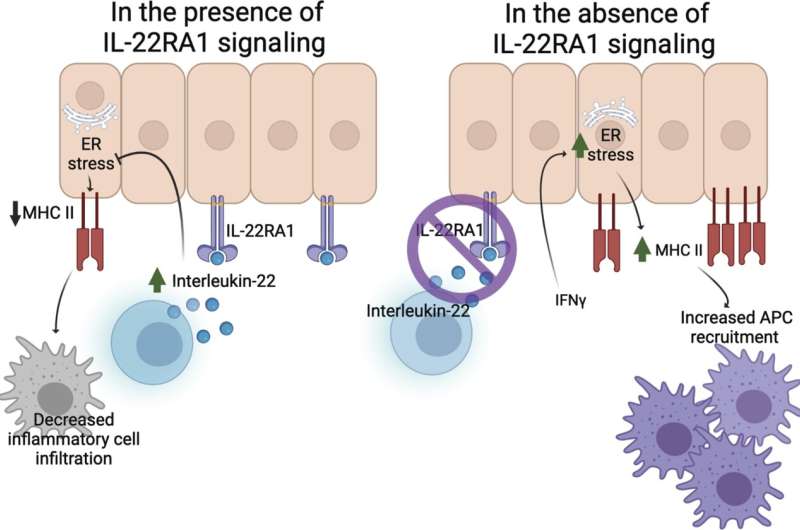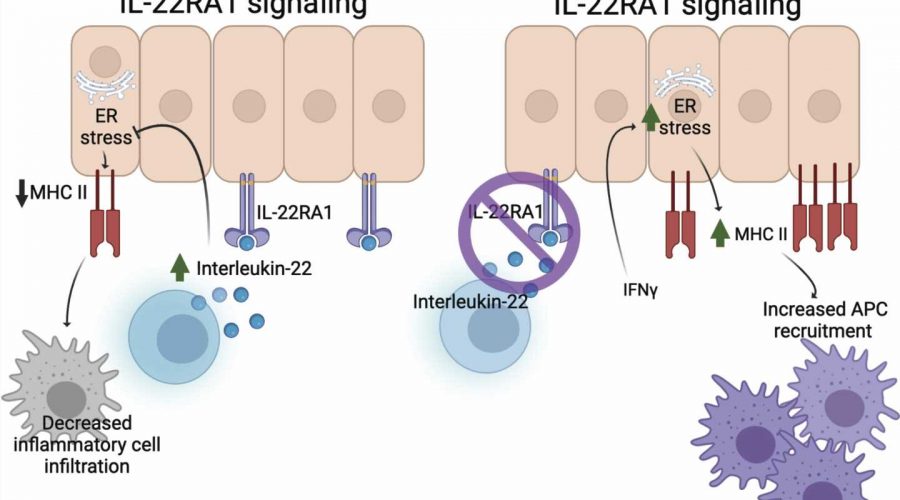Interleukin-22 study provides better understanding of immune responses in inflammatory bowel and lung disease

An immune factor released by white blood cells during infection or inflammation works to suppress the body’s immune response instead of enhancing it, according to Mater researchers.
The finding gives medical practitioners a better understanding of chronic inflammatory conditions in the guts and lungs and provides hope to sufferers that better therapeutics to manage such conditions will be developed.
The research was led by Associate Professor Sumaira Hasnain and has been published in the Journal of Experimental Medicine, titled “Interleukin-22 Suppresses Major Histocompatibility Complex II in Mucosal Epithelial Cells.”
Associate Professor Hasnain explained that mucosal epithelial cells are the body’s first line of defense against foreign invaders. “Mucosal epithelial cells help the immune response to effectively eliminate infections,” Hasnain said.
“They can help the immune system by educating the immune system about how to recognize the pathogens via expressing antigen presenting machinery (APM), like major histocompatibility complex molecules (MHC-II).
“These molecules help immune cells recognize and fight foreign invaders, however these cells only express MHC-II molecules when they are inflamed, which occurs during infection or inflammation like that observed in inflammatory bowel disease.”
The researchers discovered that an immune factor released by our white blood cells, called Interluken-22 (IL-22) can suppress the expression of these MHC-II molecules on epithelial cells.
“This can help prevent inflammation and promote healing, especially during chronic inflammation as occurs in the gut during inflammatory bowel disease,” Hasnain said. “However, when this antigen is suppressed by IL-22, it can allow viruses at our mucosal surfaces to go unchecked and be extremely detrimental to the host.”
Associate Professor Hasnain said that the implications of the findings are extensive and critical to the field of mucosal immunity, from gut inflammation to viral infections.
“It contributes significantly to our understanding of IL-22’s dual role in homeostasis and disease conditions,” Hasnain said. “This research has potential implications for developing targeted therapies in mucosal immunity that address both the pro- and anti-inflammatory aspects of IL-22 to improve disease management and overall patient outcomes.”
More information:
Md Moniruzzaman et al, Interleukin-22 suppresses major histocompatibility complex II in mucosal epithelial cells, Journal of Experimental Medicine (2023). DOI: 10.1084/jem.20230106
Journal information:
Journal of Experimental Medicine
Source: Read Full Article
